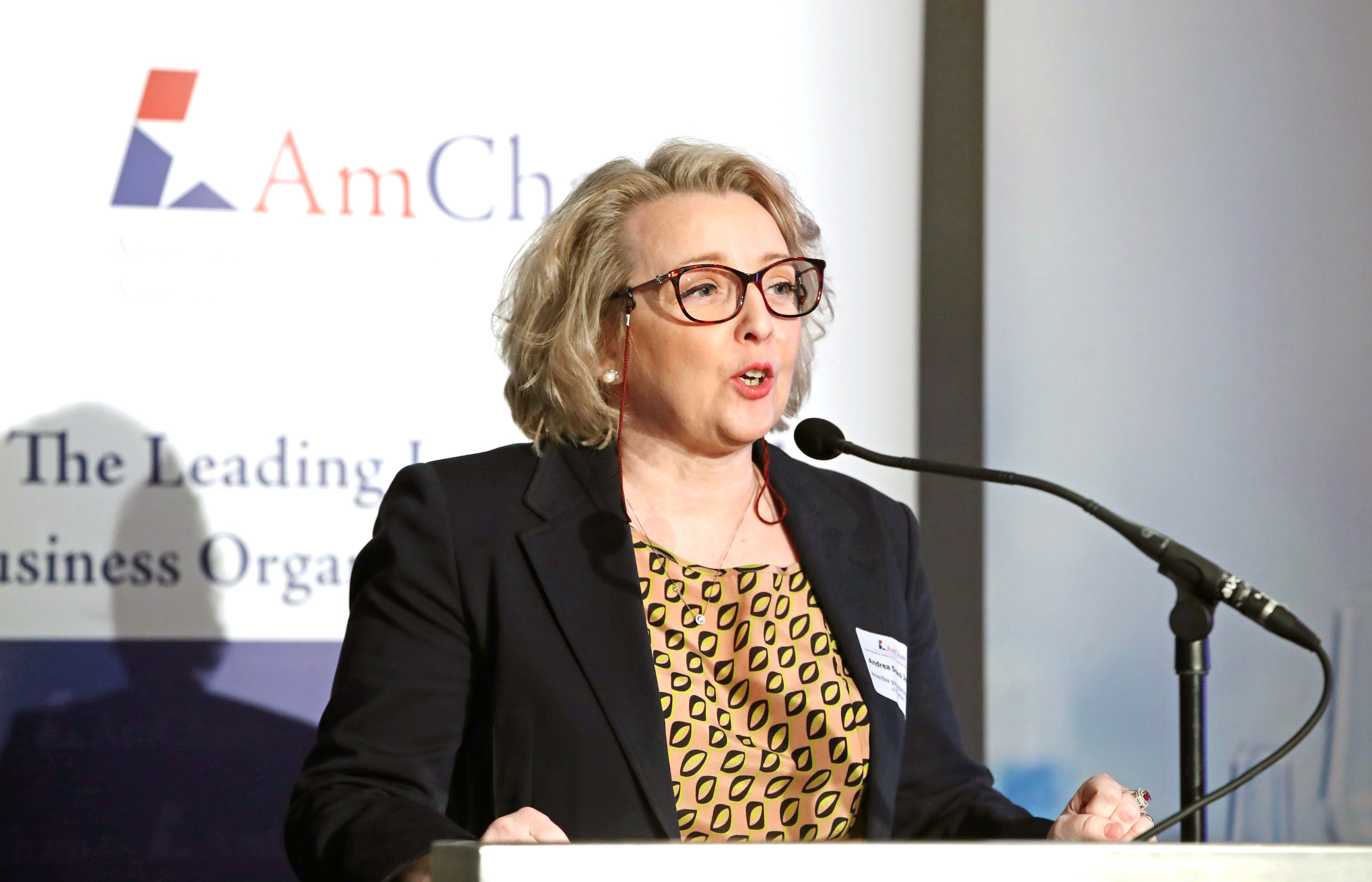We have interviewed the officials from diplomatic and economic community to found out how embassies have organized their diplomatic activities during the state of emergency, as well as, how they spend their free time and what they will do first when the state of emergency is abolished. We talked to Andrea Doko Jelušić, Director of AmCham Croatia.

foto HINA/ Damir SENČAR/ ds
1.How did you organize your business activities?
In mid March all AmCham operations switched to home office. Transfer to videoconferencing was smooth with few days of quick learning of advanced features of Microsoft Teams and Webex. All of our committees continued with their regular activities, while at the same time AmCham has prepared busy program of webinars where members are sharing their expertise. Our “in person” networking events have been switched to high level webinars with international and government speakers. AmCham is a club of companies that nurture corporate social responsibilities. Many of our members have been actively contributing to fight against Covid-19 through Medical Research & Development focused on vaccine or medicine for coronavirus, many have been donating their products & services to government or public institutions like firefighters or hospitals and many funds. An excellent example what private sector can do to help citizens in pandemic as well as earthquake in Zagreb.
2.How do you comment on the Government’s measures to help and save the economy?
High pressure situation showed that Croatian policies can be well structured and effective whether we talk about health protection or supporting the economy. Measures for job protections were processed timely which helped companies a lot. The fact that the Government chose fixed amount of support, simplified the procedures, and made the support scheme available on time. Still, many countries used support in percentage of worker’s salary which is fair to those contributing more to the state budget in regular times and is protecting high value industries and jobs. This was direction that AmCham has been advocating for. Also, we miss “furlough leave” which Croatia used in war times, while other countries are successfully using to give relief to employers, while protecting jobs. Employers of workers who are forced to stay at home but are unable to work from home because of the nature of their jobs and therefore the obligations under their employment contract cannot be fulfilled, are currently in an unenviable position. In order to protect jobs in all business entities regardless of their sector of industry, we proposed the introduction furlough leave whereby employees are entitled to compensation paid from the Government budget (equal to unemployment benefit), but employers retain such workers in employment and “recall them to work” when the extraordinary situation ceases to exist, triggering reactivation of all employment rights and obligations. In front of the Government is potential cut of parafiscal fees and AmCham will contribute with its proposal.
3.How are you spending your private time during the pandemic?
Business continued without many interruptions, but still new circumstances have caused increased intensity of work and a lot of stress. I enjoy walking my dog, who is, by the way, super happy with my new way of work. Walking frequency increased to three times a day, husband and I are at home and he is in position to get cuddled and play with us through the whole day. Spending time in a park is a privilege I especially enjoy in my free time and believe that once protection measures relax, I will enjoy the nature even more.
4.What will you do first after the current condition is cancelled?
Having short breaks to the seaside is certainly something I miss a lot. Social distancing will remain our way of life for some time. Croats enjoy spending weekends in beautiful retreats on the coast or in the countryside and families usually have second houses somewhere out of permanent residence which is a good way to be compliant with social distancing policies and still enjoy the beauties of the country.